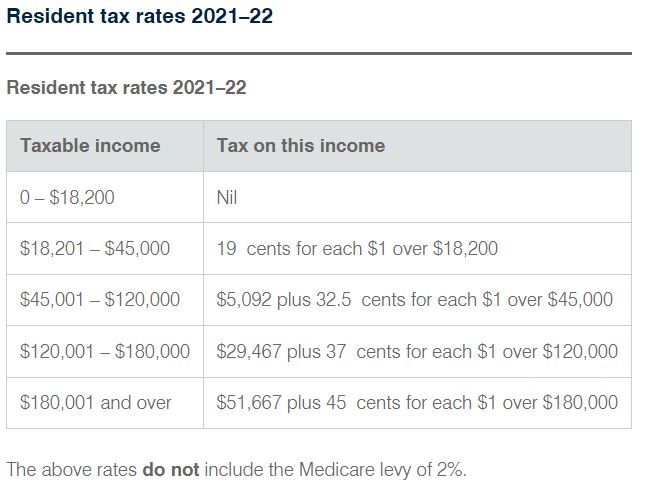Maximizing Tax Deductions in Australia: Tips and Tricks for the Upcoming Tax Year
Maximizing Tax Deductions in Australia: Tips and Tricks for the Upcoming Tax Year
Blog Article
Checking Out the Benefits of Filing a Tax Return: Maximize Your Tax Obligation Refund This Year
Filing a Tax return is often viewed as a difficult task, yet it plays a vital role in improving your economic standing. By systematically reporting revenue and leveraging available reductions and credit histories, individuals can touch into the possibility for significant tax reimbursements.
Value of Declaring a Tax Return
Submitting an income tax return is a significant duty for individuals and companies alike, as it serves both conformity and monetary administration purposes. Abiding by tax regulations is crucial, as failing to submit can lead to substantial fines, interest charges, and potential legal consequences. By sending a Tax return, individuals and companies demonstrate their dedication to meeting their civic tasks and add to the functioning of public services.
Additionally, filing an income tax return gives a possibility for taxpayers to evaluate their economic circumstance. It enables them to track income, expenses, and total monetary health and wellness, which can inform future budgeting and financial investment choices. For lots of, income tax return are an entrance to possible refunds, as overpayment of taxes throughout the year can be redeemed, using a much-needed financial boost.
Furthermore, the tax return procedure can facilitate accessibility to various economic items and solutions. Lenders typically require income tax return when determining creditworthiness for finances or mortgages, making it crucial for people and services looking for monetary assistance. To conclude, filing a Tax return is not just a regulatory responsibility; it is a substantial action in preserving financial integrity and exposing possible benefits.
Understanding Tax Obligation Deductions
Tax reductions are frequently overlooked yet play a vital duty in reducing gross income and making best use of prospective refunds. Recognizing the numerous kinds of tax deductions readily available can considerably impact your overall tax responsibility. Deductions can be categorized right into two main kinds: conventional deductions and itemized deductions.
The requirement deduction is a set dollar amount that taxpayers can deduct from their revenue, differing based upon declaring standing. For numerous individuals, particularly those without considerable itemizable expenses, taking the standard reduction is advantageous. On the other hand, itemized reductions allow taxpayers to listing eligible costs, such as mortgage interest, medical expenses, and philanthropic payments, potentially yielding a greater reduction than the standard option.
Familiarizing yourself with these nuances can help you tactically intend your financial resources and enhance your tax obligation return. By leveraging and recognizing tax reductions efficiently, taxpayers can minimize their taxed revenue and boost their overall tax obligation refund.
Checking Out Tax Credit Scores
Maximizing your tax obligation savings includes comprehending the different sorts of tax obligation credit ratings readily available to you. Tax obligation credit scores directly reduce your tax obligation responsibility buck for buck, making them a lot more beneficial than reductions, which only lower your gross income.
There are two primary groups of tax credits: refundable and nonrefundable. Nonrefundable debts can decrease your tax obligation responsibility to zero yet will not lead to a reimbursement if the credit surpasses your tax owed. Refundable debts, on the various other hand, can produce a refund also if you have no tax obligation obligation, making them especially advantageous for lower-income taxpayers.
Typical tax debts consist of the Earned Revenue Tax Debt (EITC), which sustains low to moderate-income working family members and people, and the Youngster Tax Credit report, which gives financial relief for taxpayers with reliant youngsters. Education-related credit scores, such as the American Opportunity Credit History and the Lifetime Learning Credit history, assistance balance out the expenses of college.
Typical Errors to Avoid
Steering the intricacies of tax obligation returns can bring about numerous typical risks that taxpayers ought to know. One significant error is stopping working to report all incomes. Also small amounts from side tasks or freelance work should be consisted of, as the IRS receives copies of all revenue declarations.
Another regular error involves ignoring deductions or credit scores for which one is qualified. Taxpayers need to thoroughly look into potential deductions, such as for pupil finances or medical costs, to avoid leaving money on the table.
Furthermore, errors in personal details, such as Social Safety numbers or filing standing, can delay processing and refunds. It is important to verify all details before submission to guarantee accuracy.
Filing late or disregarding to submit completely can also result in fines and missed out on possibilities for reimbursements. Taxpayers ought to recognize deadlines and plan accordingly.
Last but not least, several individuals overlook to keep detailed documents of expenses and sustaining documents. Organized documentation is fundamental for validating insurance claims and promoting any kind of future audits. By staying clear of these typical mistakes, taxpayers can simplify their declaring process and enhance their possible reimbursements.
Tips for Optimizing Your Reimbursement

Following, think about contributing to pension, such as an individual retirement account. Payments made before the tax target date can be deducted, potentially boosting your reimbursement. In addition, if you are self-employed, make sure to account for business-related expenditures that can minimize your taxable earnings.
Another essential technique is to file your return online. E-filing not just quickens the processing page time yet also decreases errors that can occur with paper entries. Additionally, verify that you choose the proper declaring condition; this can substantially impact your tax rate and qualification for sure credits.
Last but not least, keep thorough documents throughout the year. Organizing invoices and economic files can streamline the filing procedure and help you recognize possible deductions that you could otherwise miss out on. By taking these actions, you position on your own to get the maximum refund possible.
Conclusion

By carefully reporting revenue and leveraging readily available deductions and credit histories, individuals can touch right into the possibility for significant tax obligation reimbursements. For numerous, tax obligation returns are a portal to prospective refunds, as overpayment of tax obligations throughout the year can be reclaimed, supplying a much-needed monetary increase.
Recognizing the various kinds of tax obligation deductions offered can considerably impact your overall tax obligation liability. Online tax site return Australia. By leveraging and understanding tax obligation reductions successfully, taxpayers can decrease their taxable revenue and boost their overall tax reimbursement
Report this page